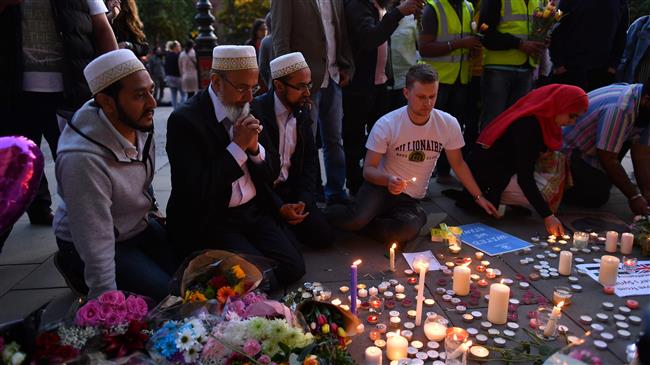A third of people in Manchester were victim of hate crimes: Report
A new report shows that hateful behavior has reached unprecedented levels in the Greater Manchester area, with more than a third of residents in Britain’s second-most populous urban area reporting that they have been targeted with hate crimes because of their religion, race and ethnicity.
The results of the report published by the Guardian on Monday suggested that some 33 percent of respondents to a survey carried out in the city said they had experienced hate crime and some 16 percent said such experiences have been “frequent”.
The report was launched at the request of Greater Manchester mayor Andy Burnham following the Manchester Arena bombing.
A total of 23 people were killed in the incident which came during a concert of an American singer in May last year.
The Daesh (ISIL) terrorist group claimed responsibility, saying one of its young recruits, a resident of Manchester, carried out the attack.
However, there was no indication in the survey that how many of the hate crimes and other cases of hateful behavior were related to Muslims.
In fact, the attack on the concert hall helped intensify Islamophobic campaigns in Britain and Manchester, leading to more hate crimes against Muslims.
The report said around two thirds of the respondents, some 65 percent, said they had experienced hateful behavior over the past year, while a third of people said they did not think their local area in Greater Manchester was a place where people from different backgrounds got on together.
The respondents warned about a government program called Prevent, which has been seeking to root out hate and terrorism-related sentiments among the public. They said the program is “negatively affecting cohesion in communities across Greater Manchester”.
Critics say the British government has stigmatized many youth by referring them to programs like Prevent, saying such moves help radicalization as it excluded people from the normal social life.
‘All wars have rules. All of those rules have been broken’ by Israel
VIDEO | Report flags India’s violation of rights of Rohingya detainees
Turkey's foreign minister meets Syria's de facto leader in Damascus
'Next to impossible' to rescue patients from Gaza's Kamal Adwan Hospital: Director
VIDEO | Vietnam current prosperity
Report blames gasoil exports for shortage at Iranian power plants
VIDEO | Hind Rajab Foundation names Israeli war criminals vacationing after Gaza genocide
VIDEO | Australians rally for Gaza ahead of Christmas festivities













 This makes it easy to access the Press TV website
This makes it easy to access the Press TV website